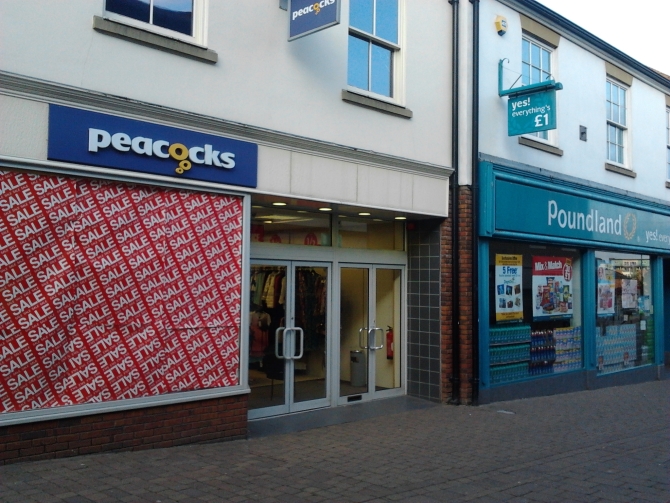Although consumers are benefiting from shop price deflation, which has seen the prices of everything from clothing to electrical goods plummet, retailers are becoming concerned that further lowering of prices will have a negative impact on their profit margins.

And it appears that the end of this competitive pricing campaign is nowhere in sight, as the British Retail Consortium (BRC) has predicted shop prices will continue to fall for some time yet.
During July, the overall price of items fell by 1.9 per cent when compared to the previous year. This was the fifteenth consecutive month in which prices fell, and the biggest monthly drop since 2006. The price of clothing items fell at the steepest rate, with consumers paying 11.2 per cent less than last July, while electrical items’ prices dropped by an average of 5 per cent.
According to the BRC, the reason for this significant drop in prices is largely due to the fact that consumers are continuing to buoy their budgets by purchasing items from more “affordable” outlets, such as Poundland or B&M.
In turn, this is causing other retailers to lower their prices and implement promotions as a means of increasing their footfall and sales figures.
BRC director general Helen Dickinson warns that this trend could place further pressure on retailers attempting to cope with rising costs in other areas of their businesses.
She says; “Against a backdrop of stable commodity markets, the stronger sterling making imports cheaper and wavering retail spending, current levels of deflation are expected to continue.
“Structural changes in retail are challenging existing business models, which in many cases are squeezing margins while other costs, such as business rates, continue to rise.”
Food prices continue to defy the deflation trend; however, in July this category rose by 0.3 per cent, but this is the lowest level of inflation noted since records began. In addition, as Ms Dickinson points out, when taking into account discount voucher use and multi buy promotions food prices also fell during the month.
The consistent rate of deflation can in part be attributed to the strength of sterling at the moment, which has meant importing goods has become cheaper for retailers. However, this does not sufficiently explain why prices have fallen for 15 consecutive months.
In reality, it is the supermarket price war which largely lies at the root of the issue, as the big four continue to invest in lowering prices to compete against foreign import discounters such as Aldi and Lidl. Unfortunately, it appears that this tactic is failing to work, as Aldi grew its market share once more last month and even managed to overtake Waitrose in this area.
The question, then, must be how long retailers will continue to drop prices – and what cost this will have on their profit margins.
Previous Post
Mayfield Station Arts Plan Derailed